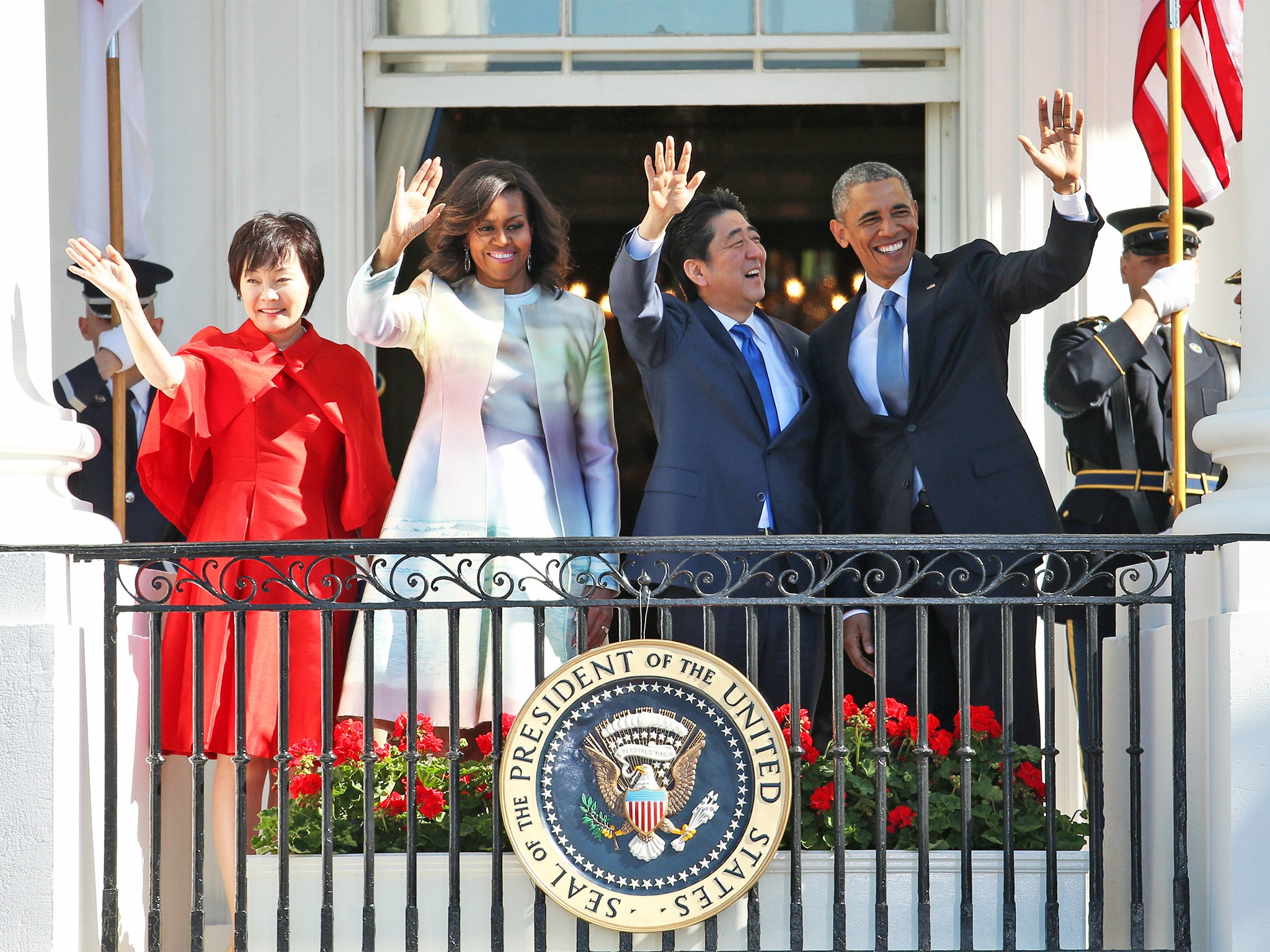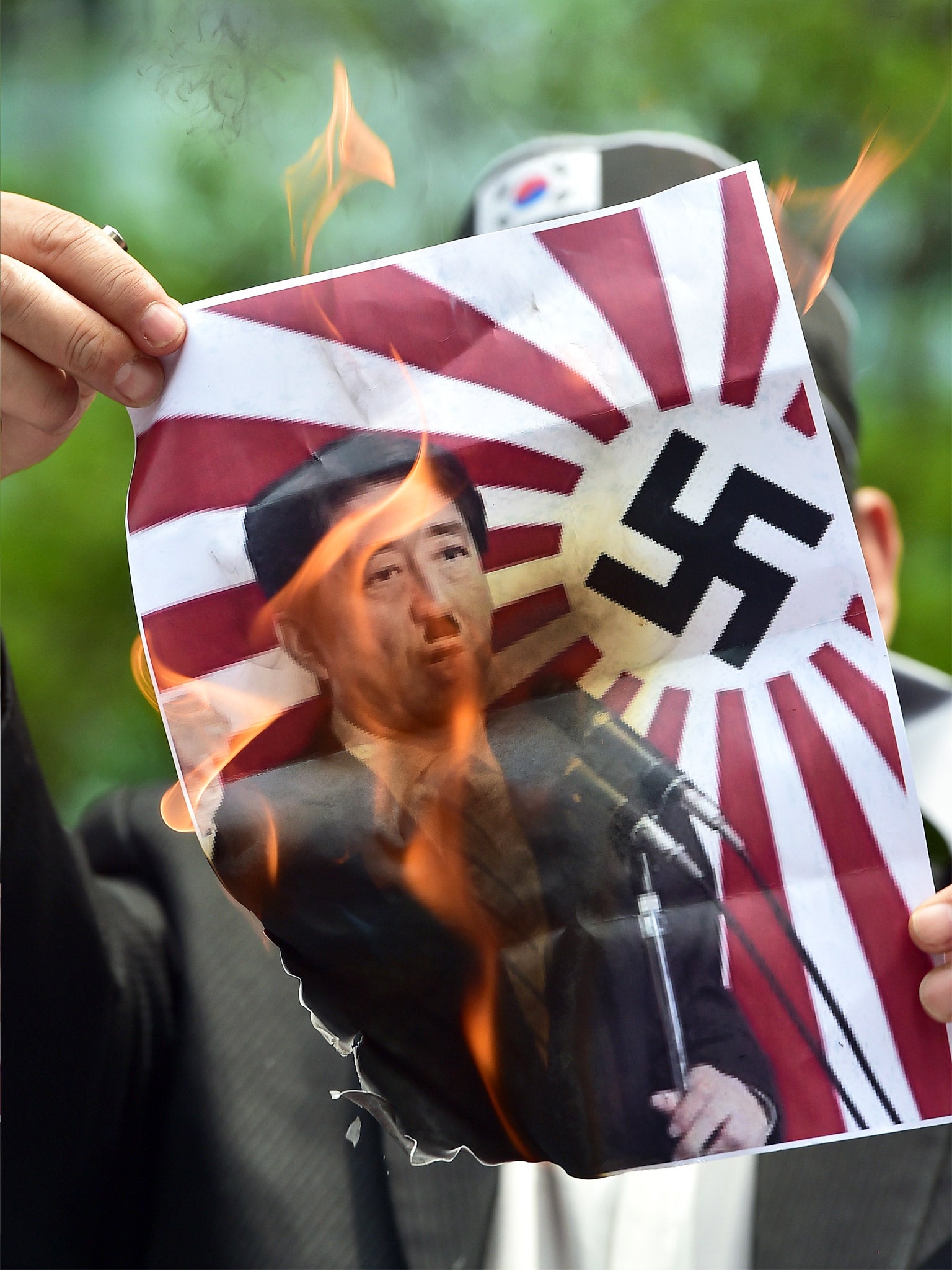Shinzo Abe speech to Congress: Japan's PM faces diplomatic balancing act over his country's ties with the US, China and South Korea
Many in the Obama administration fear Mr Abe could damage US interests and worsen already frayed ties with Asian neighbours following Japanese attempts to whitewash its role in World War Two

Shinzo Abe is primed to give the speech of his life in Washington when he becomes the first Japanese prime minister to address both US houses of Congress. The speech is expected to talk up Japan’s trade and military ties with the US but it is likely to be scrutinised for clues to Mr Abe’s views of history.
He has pleased US hawks by recalibrating Japan’s military stance and hiking defence spending to record levels. Barack Obama has described the US-Japan relationship as “indestructible”.
Much of the build-up is aimed at China, which enjoys growing sway over East Asia. The countries have been involved in a standoff over islands in the East China Sea.
To coincide with Mr Abe’s visit, Washington and Tokyo unveiled new defence rules that will give Japan’s military an expanded global role. “Today we mark the establishment of Japan’s capacity to defend not just its own territory, but also the United States and other partners as needed,” the US Secretary of State, John Kerry, said.
The plan to have Japan ride side-saddle with the US is complicated, however, by the Mr Abe’s take on the Second World War. Conservatives in his government want to rev up patriotism, celebrate the nation’s wartime “liberation” of Asia from Western colonialism and restore the emperor to prominence. Many resent the findings of the 1946-48 Tokyo war trials, which found Japan’s leaders guilty of war crimes.
This month, the government said books used in secondary schools will unambiguously state the official position on Japan’s territorial disputes with its neighbours. History textbooks will dilute or expunge references to Japan’s war crimes, swapping the word “massacre” for “incident” in reference to the rape of Nanjing in 1937, when Japanese troops sacked the temporary Chinese capital. One publisher was persuaded to delete photographs and testimony by women corralled into Japanese-army brothels.

Whitewashing history, rejecting the verdict of the Tokyo war trials and retracting Japan’s apologies with the argument that its army was waging a war of liberation, not aggression, could set Japan’s relations with China, South Korea and the US back to zero. For that reason, Mr Abe is likely to tread carefully. Questioned on Monday about the war, he reiterated a standard formula. “Japan has taken a path as a peace-loving nation based on its feelings of deep remorse over the last war… We will redouble our efforts to improve relations with China and South Korea.” What was missing was the word “sorry.”
The Prime Minister is under pressure from right-wing supporters to drop the mea culpa, along with expressions such as Japan’s “colonial rule” and “aggression” from the 1995 Murayama Statement, long considered the gold standard of Japan’s apology. Nationalists believe Japan has apologised enough.
Mr Abe has hinted he will stick by the spirit of the statement – but not the letter – when he speaks on the war’s 70th anniversary. Many in the Obama administration fear he could damage US interests and worsen already frayed ties with China and South Korea. Mr Abe’s speech is considered a trial run for this diplomatic balancing act. The big question is, however, will he say sorry?
Join our commenting forum
Join thought-provoking conversations, follow other Independent readers and see their replies
Comments
Bookmark popover
Removed from bookmarks